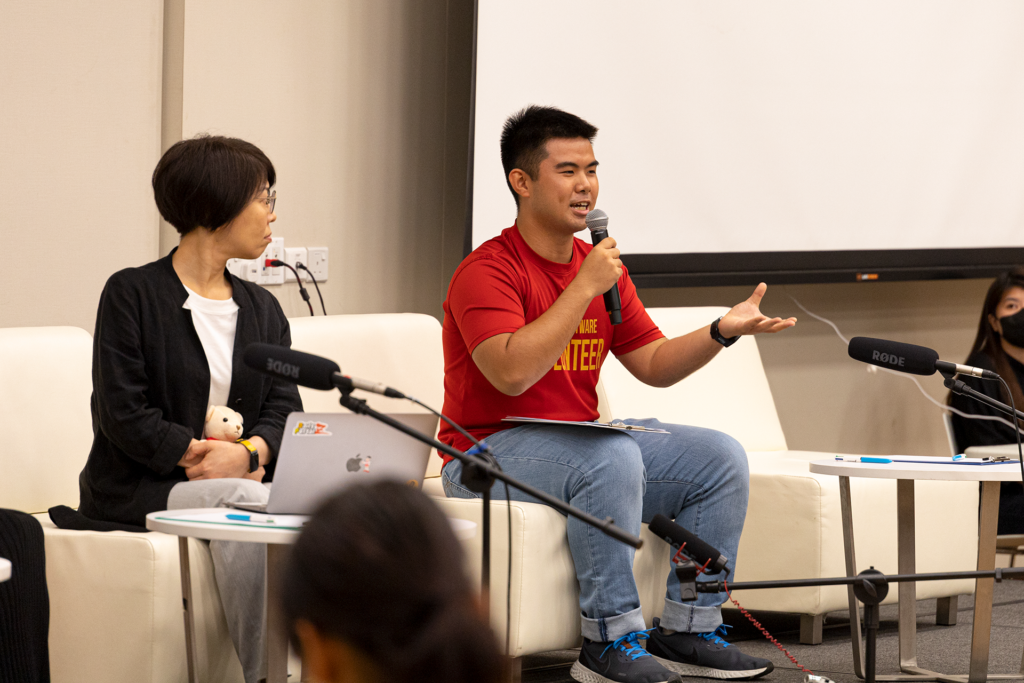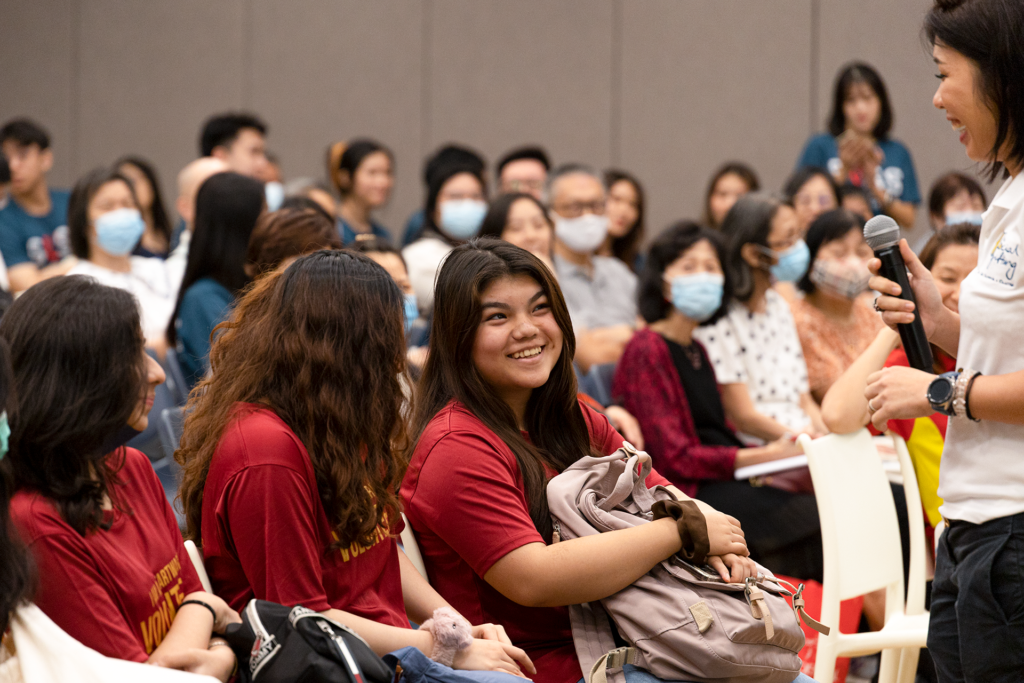Youth Dialogue on Seniors’ Well-being and Social Innovations
Organised by SUSS’s Gerontology Programme, a special dialogue on the topic of seniors’ well-being and social innovations was conducted at Heartbeat@Bedok on 11 March 2023.
The panel consisted of invited speakers from Japan, as well as one of our very own Heartware volunteers, Ooi Lit Shen with Heartware youth volunteers in attendance. The dialogue was also graced by Senior Minister of State, Ministry of Communications and Information & Ministry of National Development, Mr. Tan Kiat How who lent his views and shared insights to the youths.

Driven to provide a better future for Japan’s aging population, the two invited speakers shared their perspectives and the programmes that their organisations were providing, with the aim of enabling the seniors in Japan to age well by integrating new technology and community engagement. The dedicated and collaborative efforts to improve lives by teaming up with innovative and technology ecosystem players help to strengthen the spirit of resilience in their communities.
The first panelist was Ms. Madoka Akagi, the CEO of Miharu. She was inspired to start Miharu after a bad fall that her grandmother had that caused her to have limited mobility. Limited mobility among seniors in Japan is becoming increasingly common, making up 70% of the senior population. Motivated by this, Ms. Akagi started Miharu to provide the seniors with emotional support and companionship. Miharu provides services such as technology workshops, home visitations, and even community salons. Despite the youths at Miharu have only 2 home visitations per seniors each month, they stay in touch frequently with the seniors through online messaging apps such as Line. Like Heartware Network which depends largely on youth volunteers to run and support community programmes and projects, Miharu is largely run by paid college students with an immense passion for service – demonstrating that regardless of our age, all of us can do our part to serve the seniors in our community.
The second panellist was Ms. Shizuka Kuwahara, CEO of Baba Lab. “Baba” means grandmother in Japanese, and lab stands for “laboratory”. Baba Lab hopes to engage the seniors through enriching activities. With the growing aging population and 1 in 2 people in Japan living to the age of 90 in Japan, some seniors are concerned about living out their lives for too long without purpose. By gathering at Baba Lab centre, the seniors can take part in various activities such as sewing with various levels of difficulty and making different products. Such initiatives can help them better integrate into the community and have a good social support circle – an important anchor, especially for seniors who live alone.
Inspired by the Japanese culture of ensuring that seniors live their golden years full of purpose and enjoyment, SUSS also collaborated with Baba Lab to bring seniors in Singapore the same services. SUSS conducted a 4-day workshop for the seniors where they were taught to make handicrafts and learnt sewing skills, enabling them to make their very own fabric products (e.g. clothes) that could be sold. With such initiatives as a stepping stone, more organisations in Singapore can step out and work towards the same goal of treasuring seniors, empowering them, and improving their mental well-being.

Our third panellist, Ooi Lit Shen, Heartware volunteer leader had 3 years of experience in the Heartware Support Our Pioneers Programme (HWSOP) at the Taman Jurong site. He conducted biweekly visitations to isolated seniors and provided social and emotional support. During his visitations, mobile digital clinics were also conducted to bring digital connectivity to the seniors right at their homes in hopes of bridging the digital divide as Singapore moves towards its goal of being a smart nation. For seniors who are homebound, the clinics are especially helpful in connecting them digitally to the rest of the world and staying abreast of developments.
The volunteers from the HWSOP programme also celebrate special occasions such as National Day with the seniors. When he was asked about his most memorable experience as a volunteer, Lit Shen recalled the times he spent with a senior who was suffering from stage 4 cancer, providing him the support and encouragement that he needed to fight on. He added, “This has also made me realise how important it is for us to show our concern for the seniors as it really means a lot to them when they have someone to support them. For me, it has moved beyond volunteering, but much rather treating each senior as a family member of our own, where we genuinely care about their well-being and situation.”

Some of the Heartware volunteers who attended the dialogue shared how they were “truly intrigued by the Japanese culture of ensuring that every life is lived with purpose till the end”. Lit Shen himself highlighted that he is “amazed by how enterprises are willing to work together with the younger generations to care for our seniors and even enabling them to give back to the society, which benefited both the younger generation and the seniors in their own ways”.
The Youth Dialogue session on seniors’ well-being and social innovations has inspired many to extend their outreach and continue impacting the lives of more seniors. The goal of intergenerational bonding and active aging can be bridged through joint efforts by social enterprises, non-profits, and the community. Additionally, Singapore can strive toward incorporating the same culture and motivations as the Japanese, such that every senior can live their life meaningfully and full of colour.
